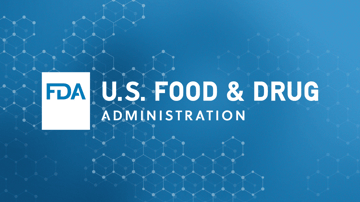
In her "Countdown to FSMA 204" blog series, guest blogger Julie McGill, Vice President of Supply Chain Strategy and Insights, shares important topics leading up to November.
We are two short months from the FSMA 204 publication date of November 7, 2022. This groundbreaking regulation will establish additional traceability recordkeeping requirements for companies that manufacture, process, pack, or hold foods on the FDA's Food Traceability List.
The proposed rule was published on September 23, 2020, and many businesses are still grappling to fully understand the finer details. What will FSMA 204 look like for your company? What will you need to do before the compliance deadlines? And most importantly, how will FSMA 204 impact your organization?
Today, we'll look at the three things you need to understand to better prepare for the upcoming FSMA 204 implementation.
- FSMA 204 Impacts Every Level of the Food Supply Chain
With FSMA 204, companies must establish and maintain records for critical tracking events including growing, shipping, receiving, creating, and transforming designated high-risk foods. The proposed rule includes recordkeeping for all levels of the food supply chain, including grocery and foodservice. - FSMA Was Created to Shift the Industry from Reactive to Preventive
After decades of foodborne illness outbreaks and an average of 3,000 people dying from foodborne diseases every year, one thing became abundantly clear: Responding to recalls and contamination events is not enough. With consumer safety everyone's goal, the industry needs to shift its focus from reactive to preventive. FSMA 204 ensures that every link along the food supply chain collects enhanced traceability records, which will help the FDA rapidly and effectively identify recipients of foods to prevent or mitigate foodborne illness outbreaks. - Evaluating Your Supply Chain is the Best Measure You Can Take Right Now
The organizations most likely to be negatively affected by FSMA 204 are those that do not have visibility across their supply chains. By collaborating with the organizations you're working with (suppliers and customers), participating in industry discussions, and mapping out your internal operations and processes, you can begin to determine your roles and responsibilities that will be a part of required FSMA 204 recordkeeping.
Join us on Thursday, September 22 at 2 pm EST as FoodLogiQ traceability experts share insights and solutions for the journey ahead. Learn the five critical steps your company can use today to chart a path for success.
Other posts you might be interested in
View All Posts
7 min read
| May 12, 2023
Top FDA Food Safety Compliance Concerns for Restaurants and Technology to Help
Read More
Traceability
11 min read
| November 15, 2022
FSMA 204 Final Rule: Roadmap to Enhanced Traceability Recordkeeping
Read More
Traceability
6 min read
| January 29, 2021

